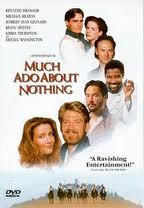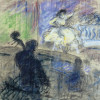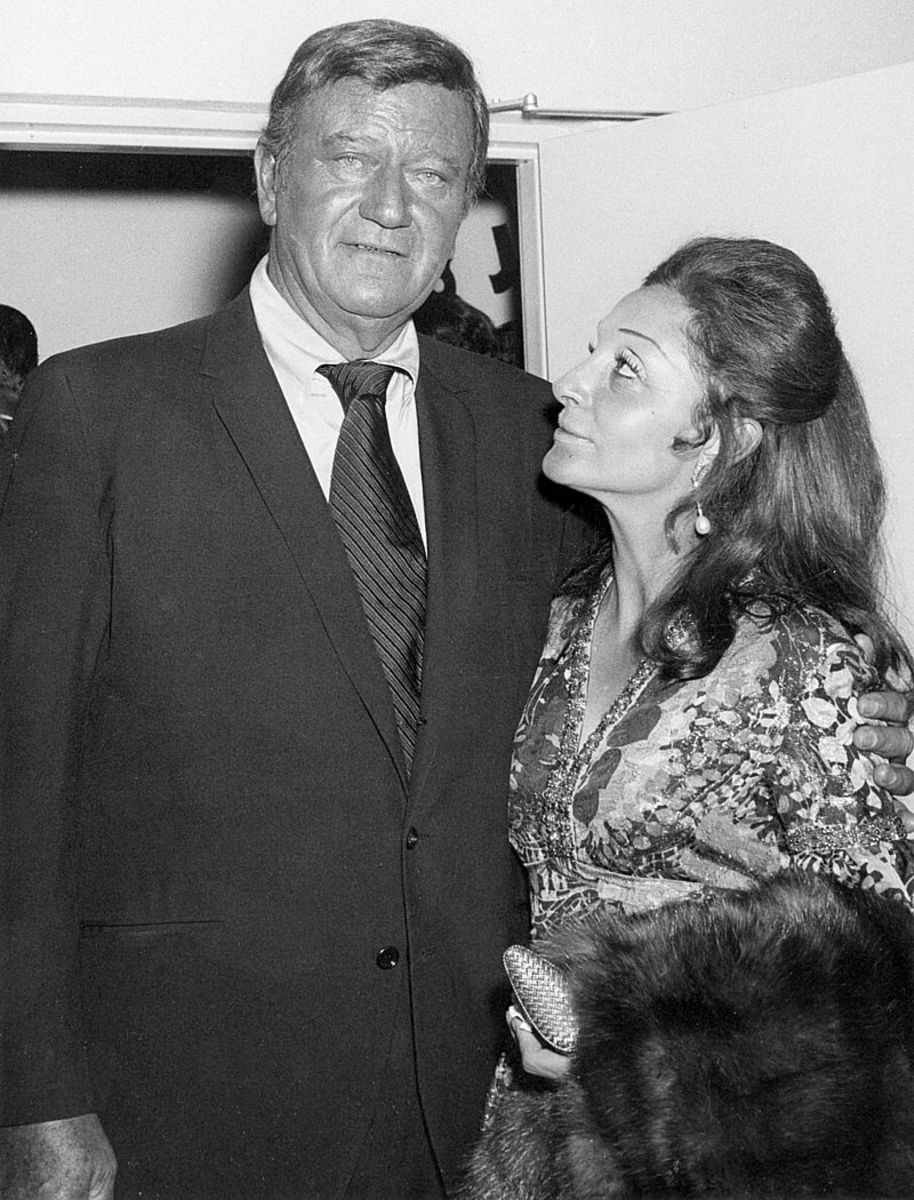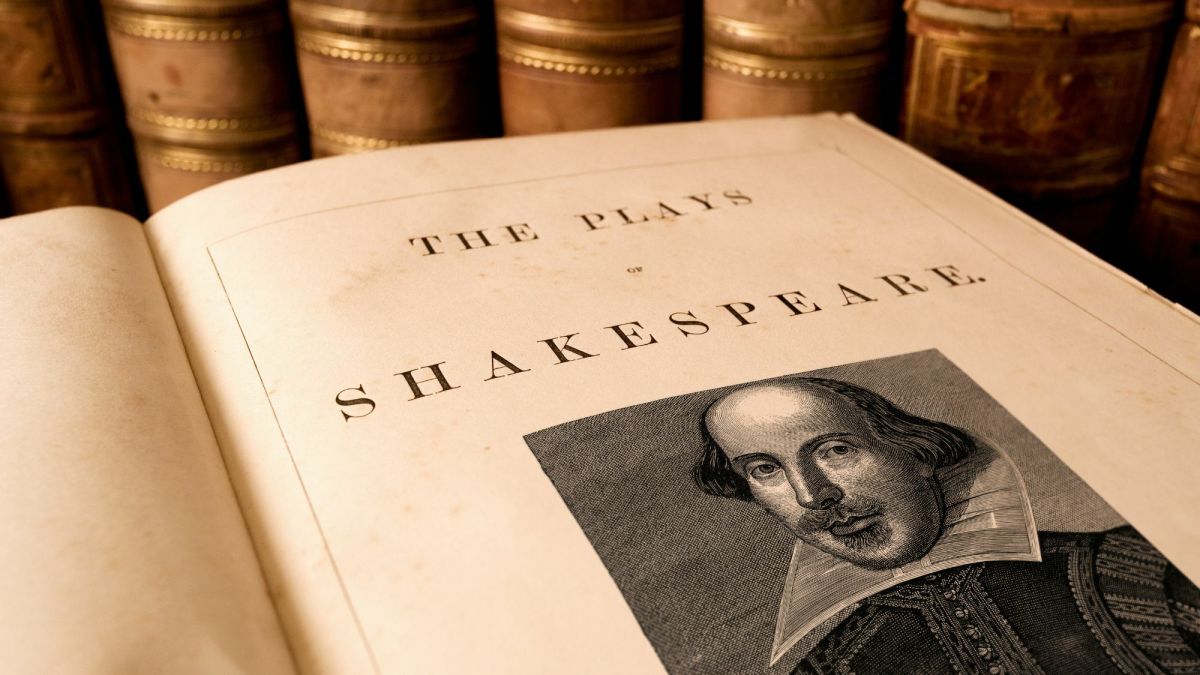Review of the Films: Much Ado About Nothing (Kenneth Branagh version)

Much Ado About Nothing
Much Ado About Nothing is a film that is an adaption of the play with the same name that was written by William Shakespeare. Kenneth Branagh stars as Benedick and directs the film as well. The cast includes plenty of A-listers and all around great actors and actresses.
Branagh focuses on making a faithful interpretation of Shakespeare's original play setting it in Spain like the play, and in the same time period the play was set in. No modern interpretation with guns or large corporations here, Branagh delivers a great film, capturing the essence of the story, and making it very easy to understand all of the jokes Shakespeare was writing.
Grade A (9.4/10)
Adapting Shakespeare To Film
Adapting a play to film, let alone a play by Shakespeare to film, forces some very difficult choices on the filmmakers. Although plays and films are very similar they have some key differences, and the most obvious key difference is the need to be very descriptive in a play and to be able to get the audience to use their imagination.
The acting done in plays has to be obvious, for lack of a better word, because the audience has to imagine or visualize what the actors are talking about, and the setting and props of the play, with their own imaginations. In films the acting doesn't have to be obvious, it can be subtle because there are so many other ways to get a message across without having to rely on dialogue and acting.
This being said, the filmmaker has a couple of options on how to handle filming a Shakespeare play. They can treat it more like a film and use more subtle acting with Shakespeare's dialogue and liberally use filming techniques to tell Shakespeare's story. This usually results in the more modern looking Shakespeare adaptions, for example the 1996 Romeo and Juliet (Luhrrman) film and the 2000 Hamlet (Almereyda) film. Or filmmakers can film it like a play first, and use filming techniques to support the play without getting in the way of story. This usually results in the acting being more obvious and physical, but it is comes across being more like the way Shakespeare would have intended his play to look. This has resulted in the more traditional looking Shakespeare films, for example the 1968 Romeo and Juliet (Zifferelli) film and the 1996 Hamlet (Branagh) film.
In Much Ado About Nothing Kenneth Branagh goes the traditional route, using film only to add to the play when necessary otherwise he focuses on faithfully adapting the play first.
Film Information
Release Date
| May 7th, 1993
|
|---|---|
Length
| 1 hour 51 minutes
|
Budget
| 8 million
|
Box Office
| 23 million
|
Studio
| BBC FIlms/Renaissance Films
|
Distributor
| Samuel Goldwyn Company
|
Country
| U.S./U.K.
|
Plot Synopsis Much Ado About Nothing
This play falls under the category of comedy for Shakespeare, the other two genres he wrote plays for were dramas and histories, although this play comes dangerously close to being a tragedy.
The title of this play really says it all, a lot of drama, fussing, and tension is made up about nothing, or in this case believing in rumors. In Much Ado About Nothing there are two love stories going on simultaneously. Claudio and Hero are the young couple, naïve to love, they are romantics and are greatly enamored with the idea of love and marriage. There complete opposites are the couple of Benedick and Beatrice who battle it out with each other's wits at every possible moment, and both claim to be repulsed by the idea of love and marriage.
The film, or play if you will, begins with Don Pedro returning from battle to visit the Governor of Messina, Leonato. Don Pedro's men which include Benedick, Claudio, and Don John (the primary antagonist) are housed with Leonato, and a party is thrown to celebrate their return. Leonato's daughter Hero has a crush on Claudio, but has been promised to Don Pedro, and Leonato's niece, Beatrice, is widely believed to not be suitable marriage material. The movie focuses on developing the relationships between Claudio and Hero and Benedick and Beatrice as well as the evil schemes of Don John, Don Pedro's half brother, who likes to create trouble.
Cast
Character
| Actor
|
|---|---|
Benedick
| Kenneth Branagh
|
Beatrice
| Emma Thompson
|
Don Pedro
| Denzel Washington
|
Don John
| Keanu Reeves
|
Constable Dogberry
| Michael Keaton
|
Claudio
| Robert Sean Leonard
|
Hero
| Kate Beckinsale
|
Leonato
| Richard Briers
|
Crew
Credit
| Name
|
|---|---|
Director
| Kenneth Branagh
|
Original Story
| William Shakespeare
|
Adapted Screenplay
| Kenneth Branagh
|
Producers
| Kenneth Branagh, Stephen Evans, and David Parfitt
|
Cinematography
| Roger Lanser
|
Music
| Patrick Doyle
|
What's Good About Nothing?
What's good about this film? It's a very faithful adaption of a classic play. Branagh treats this film more like a play than film. The qualities of film-making are only used to serve the play when they are needed. The costumes, set design, and cinematography are all excellent and they are set to reflect the period that the play originally took place in.
The acting in the film, for the most part, is great. Kenneth Branagh is able to portray Benedick with both humor throughout the play and with a deadly seriousness when the time comes. Emma Thompson was meant to be Beatrice, and her prickly insults make her character hilarious, and when the time comes for her to be a strong-willed woman she is able to capture that perfectly. The chemistry between Thompson and Branagh in this film makes their characters love seem believable, which is difficult to do since they spend the vast majority of the play insulting one another. Thompson and Branagh were married in real life at the time this film was made, which probably helped to make the love between their characters seem genuine.
A lot of the supporting actors handle their job well, too, especially Denzel Washington as Don Pedro. After seeing Training Day it's hard to imagine Denzel Washington doing Shakespeare, but he does it real well in this film. Robert Sean Leonard and Kate Beckinsale handle the roles of Claudio and Hero very well, too.
Another great thing about this film, and something that isn't usually discussed in Shakespeare film adaptions, is the film score. Patrick Doyle does an excellent job of supporting the film's plot with music, and the music in the final scene is a particularly effective way to celebrate love, romance, and the ending of the film.
What's Not So Good About Nothing?
The vast majority of the acting in Much Ado About Nothing is nothing short of fantastic, but then there is Michael Keaton and Keanu Reeves. Michael Keaton for the most part does a good job, the only real problem with his performance as Dogberry the local constable, is that Keaton's performance seems to bare a lot of resemblance to his performance as Betelgeuse in the film Beetlejuice, which can take you out of a Shakespeare film pretty quickly.
The other acting problem, Keanu Reeves, plays Don John the primary antagonist in the film. It's almost as if Shakespeare had the foresight not to give this villain a lot of dialogue in the play because he knew some 400 years in the future he would have to be portrayed by Keanu Reeves. Fortunately for the film Don John doesn't have a lot of lines. A couple of sentences here and there, and then one long conversation with some of his co-conspirators are all the lines Don John has to say. He then conveniently disappears from the play until the very end. Reeves is stiff as Don John and doesn't convince viewers of his hatred for his brother or the new developing romantic relationships. He also delivers his lines with his trademark awkward pauses and deep breaths, which is hilarious for the wrong reasons.
In Keanu's defense he does deliver some of his lines well. He also pulls off looking like a villain real well, too. When you see Keanu Reeves in the film, you know this guy is the bad guy, which helps to serve the story's plot.
Much Ado About Nothing Trailer
Much Ado About Nothing Is Recommended To...
This film is recommended to people who like Shakespeare, particularly people who like very faithful adaptions of Shakespeare plays. The film-making doesn't get in the way of the play, and the characters, setting, and dialogue are all faithful to the original text and ideas of Shakespeare's story.
Conversely if you are looking to break into Shakespeare, and you don't know where to start, this is a good play and a good film adaption to begin exploring Shakespeare with. The directing style and clarity of the delivery in the acting makes it very easy to understand the plot and the jokes that are being told throughout the play. Beatrice and Benedick are two character's that are ahead of their time, which helps to traverse the 400 year time gap of when this play was written.
Other than a few blips here and there, this film is one of the best Shakespeare plays adapted to film that I've ever seen.
Check out the review for Kenneth's Branagh's version of Henry V








